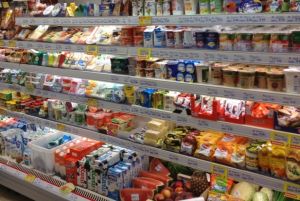Analytics, Inflation, Latvia, Markets and Companies
International Internet Magazine. Baltic States news & analytics
Tuesday, 23.12.2025, 04:36
Latvian EcoMin: consumer price growth in April very moderate
 Print version
Print version |
|---|
Since 2006 consumer price growth in April had been in the range between 0.5% and 1.5%, with exception of 2009 when there was deflation and 2013 when consumer prices remained unchanged.
In April 2016, Latvian consumer prices rose 0.4% from March, with prices for goods growing 0.7% and prices for services dropping 0.5%.
During the last 12 months, consumer prices remained unchanged as compared to the previous 12 months in April.
"Similarly to March, consumer price growth in April was mostly due to the price growth for clothing and footwear which is typical for the season. Prices of clothing and footwear grew 6.2% in April, pushing the overall level of consumer prices up 0.3 percentage points,” said the Economics Ministry official, Ieva Snidere.
Food prices rose 0.6% in April, adding 0.2 percentage points to overall inflation.
Fuel prices increased 3.2%, contributing 0.2 percentage points to the consumer price growth.
The decline in thermal energy prices had the biggest downward influence on consumer prices in April. Because of falling prices for natural gas, thermal energy price dropped 2.5%, bringing the overall consumer price level down 0.1 percentage point.
Prices of recreation and cultural services also fell in April – by 8.4% of average, reducing overall inflation by 0.1 percentage point. Price fluctuations in other groups of goods and services had no significant effect on the overall consumer price level.
In April 2016, consumer prices dropped 0.8% compared to April 2015. During the last 12 months, consumer prices remained unchanged as compared to the previous 12 months in April.
"Low world prices for oil and food will continue influencing inflation in 2016. Because of a significant reduction of energy prices affecting prices in most groups of consumer goods, average annual inflation this year might be close to zero or even turn into deflation,” the Economics Ministry expert said.








 «The Baltic Course» Is Sold and Stays in Business!
«The Baltic Course» Is Sold and Stays in Business!

